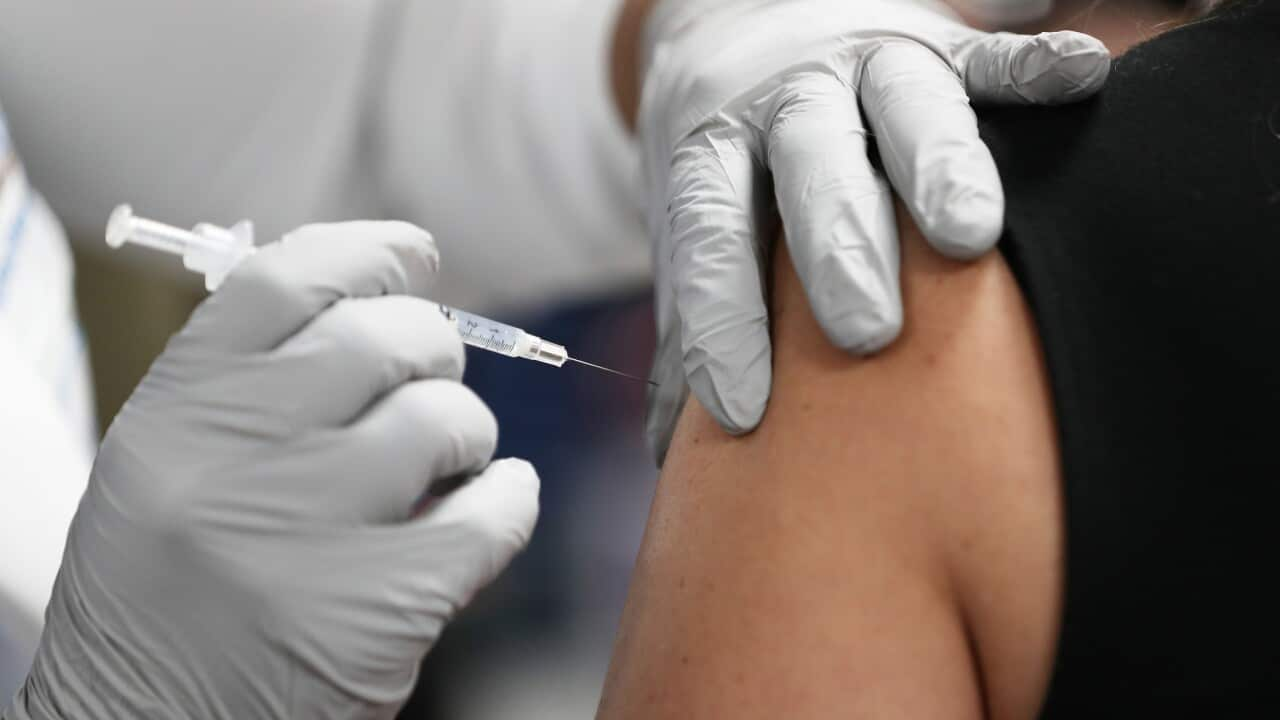The federal government has accepted new COVID-19 vaccine advice, as experts urge Australians to roll up their sleeves amid concerns over "vaccine fatigue".
Health Minister Mark Butler confirmed the government had accepted the latest advice from the Australian Technical Advisory Group on Immunisation (ATAGI) and stressed that vaccination is the most effective tool to prevent severe illness or death from COVID-19 and influenza.
The announcement was welcomed by experts but some have warned that the current approach is "nowhere near sufficient" to encourage inoculation among under-vaccinated and at-risk groups.
What is the latest influenza and COVID vaccine advice?
Influenza vaccines will be available from early April and are free, through GPs and pharmacies, for:
- Anyone aged 65 and over
- Pregnant people
- First nations people (above six months old)
- Children aged six months to five years
- People with medical conditions that increase risk of complications
The recommendations for a free vaccination against COVID-19 include:
- Every six months for anyone aged 75 and over every six months
- Every 12 months for people aged 65 to 74
- Every 12 months for severely immunocompromised children aged 5 to 17 and adults aged 18 to 64
A free vaccination is also available for all adults every 12 months but vaccination is not recommended for otherwise healthy children, due to a comparatively low risk of severe illness and 'hybrid immunity' — where children have gained immunity through a combination of both vaccination and experiencing a COVID-19 infection.
According to the advice, COVID-19 and influenza vaccines can be administered at the same time meaning there is no need for multiple appointments.
Concerns for the 2025 winter season
Around 8.8 million flu shots were administered in 2024, compared to 9.3 million in 2023, according to the National Centre for Immunisation Research and Surveillance Australia.
Parental support for vaccinating children under five has also dipped, with the health department a shift from 72 percent in 2017 to 50 percent in 2022.
It's a trend that Australians can't afford to continue into this year's winter season, the Australian Medical Association (AMA) has said.
AMA president Danielle McMullen said: "I can't be too blunt about this: thousands of people die each year from respiratory disease including flu, COVID-19 and RSV (respiratory syncytial virus)."
LISTEN TO

Severe 2025 flu season likely, prompting calls to get vaccinated
SBS News
06:50
McMullen is warning of a potential "horror flu season", partly caused by "some vaccine fatigue out there following the pandemic, and some wildly misleading and damaging information on social media".
McMullen's concerns are shared by Professor Adrian Esterman, an epidemiologist and chair of biostatistics at the University of South Australia.
"The northern hemisphere has seen a very severe flu season this winter, one of the most intense in recent years. This means that Australia is also likely to have a severe flu season," he told SBS.
While COVID-19 rates might spike over winter, this doesn't necessarily mean a return to 2023-24 levels, he said, adding that COVID-19 rates are currently the lowest seen in some time. COVID surveillance, however, has been wound back since the height of the pandemic when testing was widespread.
Esterman stressed that people should get vaccinated ahead of the annual spike in viral respiratory diseases.
Is enough being done to reach at-risk groups?
Both McMullen and Esterman emphasised the importance of vaccination against the flu, COVID and other respiratory illnesses for vulnerable populations, such as elderly and immunocompromised people, babies and young children as well as pregnant women with underlying medical conditions.
While Esterman said today's statement from the health minister was "welcome", he is concerned that it's "nowhere near sufficient" to encourage vaccination in the communities who need it the most.
"For example, only 17 per cent of Australians aged over 75 are up to date with their COVID booster shot. We need much better messaging from the government — where are the TV or radio ads?
"Talking to many of my elderly friends, they simply do not know the importance of vaccination including whether and when to get vaccinated," he said.
"What is required is much better messaging from our state and federal governments [and] GPs also have a central role in encouraging their at-risk patients to get vaccinated."
With additional reporting by the Australian Associated Press



